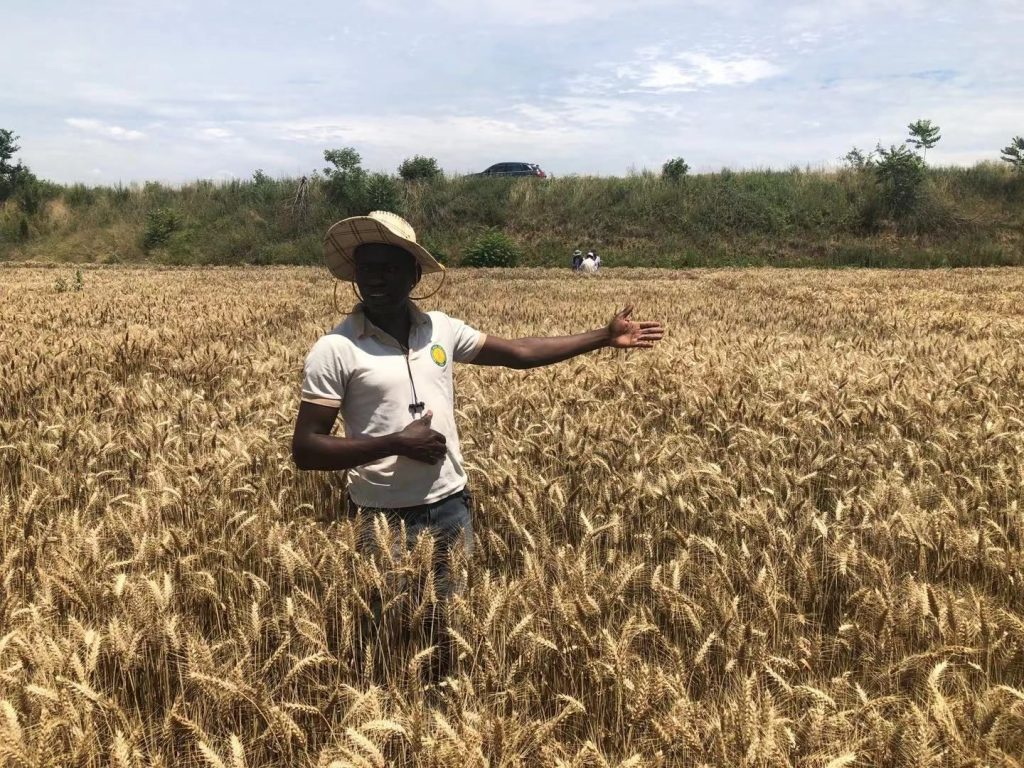Nigeria has achieved approximately 10 per cent self-sufficiency in wheat production, with ambitious plans to reach 70 per cent in the next five years.
Former executive director of the Lake Chad Research Institute, Dr. Oluwasina Olabanji shared insights on Nigeria’s journey toward wheat self-sufficiency at the ongoing West and Central Africa Wheat Collaborative Network Wheat second regional summit in Abuja on Wednesday.
Olabanji highlighted the historical context of wheat production in Africa, stating, “Wheat is a staple crop worldwide; almost everyone consumes it in some form every day. This highlights its significance in the global economy. However, we in Africa have historically neglected to prioritize wheat as an important crop, which has led to our ongoing struggles with self-sufficiency in production.”
Underlining the efforts made to bolster wheat production, he expressed gratitude for interventions from the International Maize and Wheat Improvement Center in Mexico and the African Development Bank. “Central and West African countries are increasingly recognizing the importance of wheat in our sub-region,” he noted.
According to Olabanji, a key milestone in Nigeria’s agricultural transformation came with the Agricultural Transformation Agenda, which saw national wheat production rise dramatically.
“Let me share a case study from Nigeria: before our Agricultural Transformation Agenda, national wheat production stood at just 70,000 metric tons. Thanks to this agenda, our production soared to 450,000 metric tons in just three years, with productivity rising from 1.5 to 2.5 tons per hectare. With further interventions from AFDB through the TAAT projects, Nigeria has now achieved approximately 10 per cent self-sufficiency in wheat production,” he said.
Despite the progress, Olabanji emphasised the potential for even greater achievements.
“We believe we could have reached 70 per cent self-sufficiency by now if not for policy summersaults,” he said.
He also praised the WECA Wheat initiative, which has brought together scientists to enhance wheat productivity, producing high-yield varieties like Bulog 100 and Noma, which average yields of 4.5 to 6 tonnes per hectare.
He noted that the Nigerian government has demonstrated its commitment to achieving self-sufficiency, with substantial acreage dedicated to wheat cultivation.
“Through the National Agricultural Growth Scheme, supported by AFDB, we cultivated approximately 250,000 hectares of wheat last season. Looking ahead to 2024-2025, we plan to cultivate another 250,000 hectares across the 16 states,” Olabanji stated.
He outlined future ambitions, “With the strategy document we’ve prepared, we aim to increase production to 500,000 hectares next season. If we achieve an average yield of 3.5 tonnes per hectare, I am confident that Nigeria will attain 70 per cent self-sufficiency in wheat production within the next five years.”
Value chain specialist and country engagement officer at TAAT, Dr. Toyin Adetunji also spoke about broader regional efforts, emphasising the African Development Bank’s Feed Africa initiative.
“Our goal is to increase productivity by 120 million metric tons and reach 40 million farmers across Africa,” she said.
Highlighting successful case studies from other African nations, she noted, “We’ve seen success in countries like Sudan, which moved from 22 per cent to 55 per cent self-sufficiency, and Ethiopia, which reached 100 per cent with potential for export.”
Adetunji pointed out that strong government support and effective policies were key drivers of these successes.
In light of recent global challenges, particularly the Russian-Ukraine war, both Olabanji and Adetunji underscored the urgency for African nations to achieve wheat self-sufficiency.
“The African Development Bank provided $1.5bn to support agricultural development, with $134m allocated to Nigeria,” Adetunji affirmed, reiterating the commitment to assist West and Central African countries in their wheat transformation journey.
She noted that as Nigeria positions itself on the path to increased wheat production, the focus remains on collaboration, innovation, and policy reform to unlock the region’s agricultural potential.
TO READ MORE NEWS UPDATES; CLICK @ https://www.voiceairmedia.com
NOTE: YOU can join our WhatsApp, Telegram for the news updates you need by sending your name & location to WhatsApp No. @ Wa.me/+2348111142174




